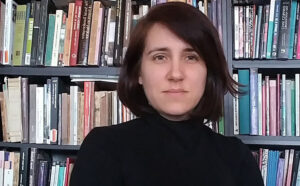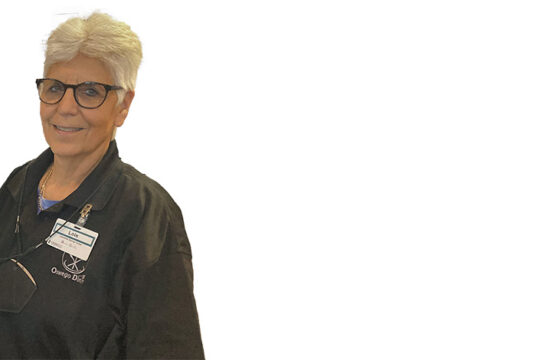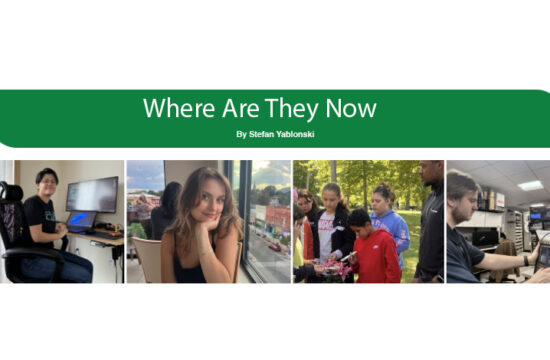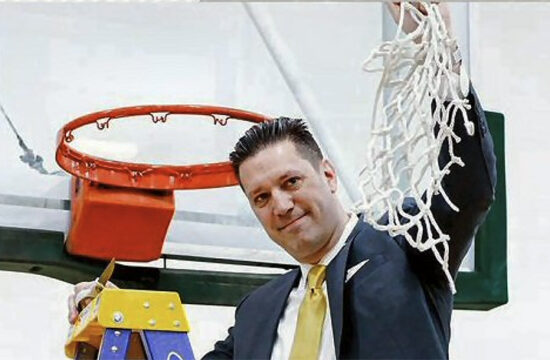
Roseli Rojo came from Cuba and has studied at various educational institutions around the world.
She began at the University of Havana, where she studied classical studies and Latin American literature.
“Later, I became an assistant professor of Latin American literature at the University of Arts of Havana, where I focused on the complex dynamics of stereotypes in Latin American children’s literature,” she said. “This work led to my first book, “Contar Abya Yala a los Niños” (2020) [Narrating Abya Yala to Children] which received the most prestigious award for young scholars in Cuba.”
After that, she pursued a master’s degree in Latin American studies at the National Autonomous University of Mexico, with the support of the Mexican National Council for Science and Technology (CONACyT) and the Henrich Böll Scholarship.
Rojo then moved to the United States, where she earned a Ph.D. in Latin American and Caribbean studies at Rutgers University.
“I began my American academic career as a tenure track professor at Jacksonville State University in Alabama and later took a postdoctoral position at The State University of New York, where I taught courses in Caribbean studies and Spanish at Oswego,” she said. “My work at Oswego led to me securing a tenure track position in Caribbean studies and Spanish within the department of Modern Languages and Literatures. As a teacher, I design courses such as “The Caribbean in Colonial Times” and “Cuba-Spain: Transatlantic Connections,” with a focus on literary analysis.”
In the future, she is considering developing a course centered around the Caribbean non human and the post-apocalyptic city — “inspired by my interest in science fiction.”
Outside of the classroom, she enjoys spending time with her family, which includes her son and husband.
“We love to travel, learn about new cultures and meet new people and communities,” she said. “My son and I share an interest in science, particularly in architecture and transportation systems. We read books and watch documentaries on these topics together. I am also an avid reader of history books and 18th and 19th-century journals.”
A clear vision
“Yes, from a young age, I always had a clear vision of wanting to become a teacher — to engage with large groups of students and examine early modern books,” she said. “The fascinating aspect of my career lies in conducting archive work, unearthing texts and then bringing those treasures into the classroom. It’s incredibly rewarding to illustrate to students how these writings have profoundly shaped our daily lives.”
In terms of influences, “my parents played a pivotal role in shaping my aspirations. They emphasized the importance of education, instilling in me the values of discipline and a deep love for knowledge, particularly in the realm of history,” she said. “Additionally, my husband has been a significant influence on my career. We embarked on this journey together from our roots in Cuba, where we first met. I consider myself fortunate to have his support and now, as we both work in academia, we find ourselves contributing to the intellectual landscape of the Syracuse-Oswego area.”
She is currently finalizing the transformation of her dissertation, “Distressing Bodies in Colonial Cuba,” into a publishable book, which explores the struggles and agency of underrepresented groups in the 18th-19th century Cuban slavery system.
A chapter from this work, titled “Cuban Hysteria: The Invention of a Culture-Bound Syndrome,” has been featured by Routledge, focusing on hysteria among upper-class women in Colonial Havana.
“Additionally, I am gearing up for my next project, “Caribbean Poetics of Mobility: The Gendered and Racial Hierarchies of Transportation,” aiming to comprehensively examine how transportation was rhetorically represented in the Spanish Caribbean from the 17th to the 20th century,” she said. “Supported by the PRODiG, my department and the SCA scholarship at Oswego, I have shared preliminary findings at conferences and this semester, my course “Cuba-Spain: Transatlantic Connections” will delve into some of these concepts.”












